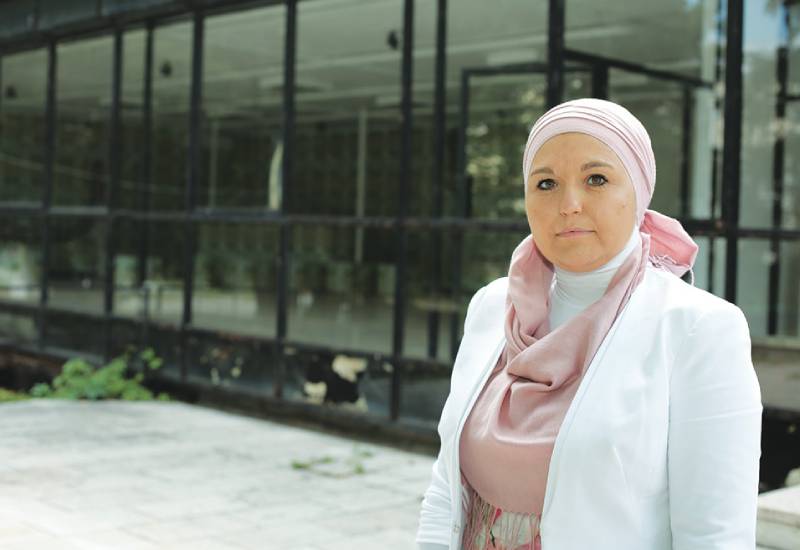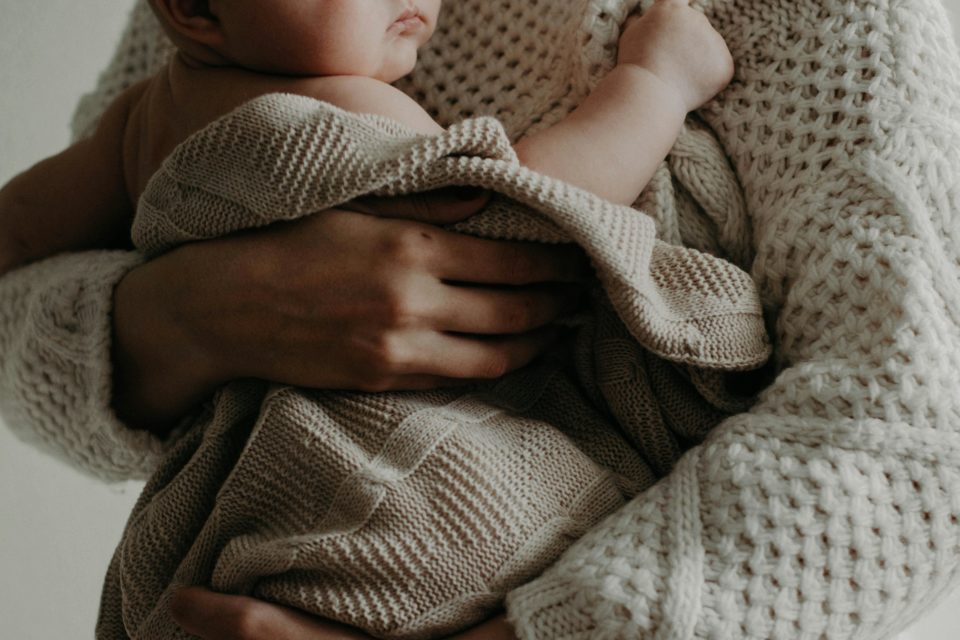
Bosnia and Herzegovina (BiH) is still a country where giving birth with dignity is not the rule but a fortunate exception.
For many women, what should be the most joyful moment of their lives turns into a struggle with outdated practices, negligence, corruption and a system that does not recognize their basic human rights. Negative experiences also affect birth rates, discouraging mothers from having more children.
In 2025, women in BiH are wondering how it is still possible that they have to beg not to be alone in delivery rooms, and how “cash under the table” has become the ticket to basic care. They rightly ask why childbirth in BiH is not safe and supported for all expectant mothers instead of what some have called a “slaughterhouse.”
We spoke with Amila Tatarević, the president of the association Baby Steps, about the increasing number of pregnant women who refuse to be just patients, but demand to be respected, informed, and protected. We also discussed the urgent need for change in BiH and the importance of creating optimal conditions for bringing new life into the world.
Positive but Insufficient Progress
Although there have been some recent positive developments in maternity care in BiH, the fight for dignified and humane childbirth is far from over. Baby Steps, which has been advocating for maternity rights for years, attests that despite visible improvements, especially in the institutions they partner with, these changes remain insufficient.
“Even though we increasingly hear about positive changes in maternity hospitals, these are still individual cases. When we compare the situation with practices in Western countries, it is clear that dignified childbirth is still the exception here, not the rule,” Tatarević told Balkan Diskurs.
One of the key obstacles is corruption, which leads to unequal treatment, as quality care often depends on bribes and personal connections. This situation is exacerbated by outdated medical practices that contradict international recommendations and the absence of sanctions for negligence.
“The lack of accountability and care among medical workers means that the women giving birth often suffer consequences, while those who make mistakes face none. All this shows that we still have a long way to go to create a safer, more humane and equal environment for women giving birth in Bosnia and Herzegovina,” said Tatarević.
Despite numerous initiatives, the right to be accompanied during childbirth is still not systematically regulated. After the pandemic, some hospitals began allowing the presence of a loved one in the delivery room, but this decision remains in the hands of hospital directors.
“Each hospital decides about escorts independently, often without clear criteria. This opens up space for unequal treatment and corruption. Some women are allowed an escort, others are not – and without any explanation,” said Tatarević.
Baby Steps has announced a new strategy in the fight for this right. Instead of going through health ministries, they will start appealing directly to the government and the Parliament of the Federation of BiH, because they believe that this issue is far beyond medical jurisdiction.
“Accompaniment is not only a matter of comfort. It is a matter of women’s rights, combatting violence, and demographic policy,” explained Tatarević. She added that according to their research, the presence of an escort during childbirth has a positive impact on women’s decision to have more children.
Injuries, Trauma, and the Silence of the System
Negligence in maternity hospitals in BiH has far-reaching consequences, leaving not only physical but also deep psychological trauma. While physical injuries to newborns and mothers are rarer, the psychological consequences often go unrecognized and unreported. According to Tatarević, many women only realize the extent of their trauma months after giving birth.
“Without psychological support and a protection mechanism, they are left alone with their experiences in a system that doesn’t recognize mistakes,” added Tatarević.
She explained that medical staff can work without fearing repercussions, as there are no sanctions or accountability for mistakes that can have such devastating consequences. Until this changes, she emphasizes, it’s impossible to speak of genuine progress.

“Without concrete legal and institutional mechanisms to protect women in labor, changes remain at the individual level, at the discretion of doctors and midwives. This means that one woman can receive completely different treatment than another – not out of medical necessity but because of someone’s personal attitude, level of fatigue, or, worst of all, financial interest,” she said.
In some alarming cases, bad practices have led to permanent damage. One example is the Kristeller manoeuvre (abdominal compression), a method banned in many countries but still practiced in BiH.
“When a tragedy occurs, institutions protect each other. Expert opinions are often given by colleagues of the accused, without any independent bodies. And in the end, the woman has to prove the fault of the system – not the system,” Tatarević pointed out.
“Tipping” Medical Staff
One of the most deeply ingrained problems in maternity hospitals is so-called “tips” for medical staff, as a result of which women and their families often feel pressured to offer tokens of appreciation just to ensure decent treatment.
“We’ve had cases where women were seriously hurt during childbirth, and their husbands still gave cash to the doctor, considering it normal. One doctor even said: ‘If I’d known you would reward me like this, I wouldn’t have let you suffer so much,’” said Tatarević.
She adds that the fault lies with doctors, who are not allowed to accept gifts because they are paid to provide the best care to all patients. “As long as they’re receiving gifts, the system will not be fair to everyone,” Tatarević said.
Cases of someone being held accountable for accepting bribes in maternity hospitals are almost non-existent. “We’ve filed two criminal reports in thoroughly documented cases of corruption, but with no results. While it’s clear that money is being sought and taken, the system is silent,” explained Tatarević.
The association also appeals for mandatory internal checks and independent ex officio investigations, because new mothers cannot be solely responsible for monitoring health institutions.
Although it is encouraging that more and more women are deciding to report violations of their rights during childbirth, systemic support is still lacking.
“Reporting is key. Every report sends a message to the system: you can’t pretend that everything is fine. Even if it doesn’t result in immediate sanctions, it creates pressure and opens up space for change,” Tatarević pointed out.
Fear of childbirth and negative delivery experiences directly influence women’s family planning decisions. According to research by Baby Steps, many women who have received poor treatment lose their desire to have additional children. “Some women literally say: ‘I’m not going back to that slaughterhouse.’ The trauma of the maternity ward kills the desire for motherhood,” Tatarević said.
This poses a serious obstacle to demographic renewal in BiH, and the main reason is the loss of public trust in the system that is supposed to protect the health of women and children.
Despite some positive developments, key systemic changes have yet to materialize. As this fight continues, Tatarević says, “the voice of women is the strongest weapon…without their stories, it wouldn’t be possible to take even a single step.”
Baby Steps has been working to protect mothers’ rights since 2017. “We will continue to be their voice, because we believe that change is not only possible – it is imperative,” Tatarević concluded.






